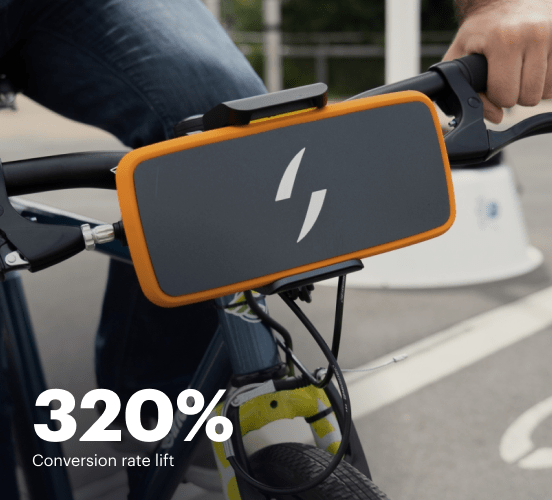Joomla vs. Drupal: the best platform for a seamless web experience
Discover how Joomla compares to Drupal regarding features and usability. Find out which platform provides the competitive advantage your business deserves.
Get startedSee how Instapage stacks up against the competition
| Feature | Instapage | Other builders |
| Drag-and-Drop Tools | ||
| Conversion-optimized templates | ||
| Manual and AI-powered A/B Tests | ||
| AI content suggestions | ||
| Popups and sticky bars | ||
| Canvas and grid blocks | ||
| Reusable and global elements | ||
| Form and popup builders | ||
| Built-in Heatmaps | ||
| Central analytics dashboard | ||
| Ad-to-page personalization and collections | ||
| Contacts, lists, and email | ||
| Dedicated, full-service CRO experts | ||
| Enterprise-ready platform |
Leading the way in building high-performing landing pages





Why Instapage is the smarter choice for your campaigns
Get everything you need to build, scale, and optimize high-converting landing pages—without coding.

Easier page building without coding
Instapage offers a flexible and seamless page creation experience with a library of 500+ conversion-focused layouts, Instablocks®, a drag-and-drop builder, and AI content generation. With technologies like Thor Render Engine®, you can create on-brand, mobile-responsive landing pages that load quickly and start converting during initial visitor clicks.

More insights — better results
Instapage lets you see in detail how each landing page experience and variation is performing so you can make targeted changes that boost page conversions. Use heatmaps for a better understanding of on-page activities, run A/B tests and AI-assisted experiments, and then track and evaluate results within robust analytics dashboards.

More personalized experiences
Instapage lets you quickly create high-performing landing pages tailored to each of your ad campaigns. Deliver personalized experiences for distinct audiences using dynamic text replacement. Effortlessly align specific advertisements to unique pages with AdMaps. Monitor audience-level metrics using our advanced data tools.
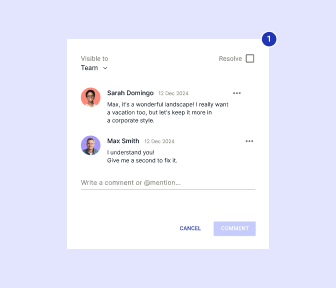
Built-in collaboration
Instapage collaboration capabilities bring your entire team together to speed up the process of landing page review, approval, and launch. No more frustrating and unnecessary revisions or edits scattered across emails. Provide instant feedback, conduct real-time page edits, and securely share your pages with outside stakeholders.

Free up time for your business
Invest time into business growth, not busy work. Launch landing pages faster with reusable forms and templates. Build once, reuse forever.
Explore all integrations
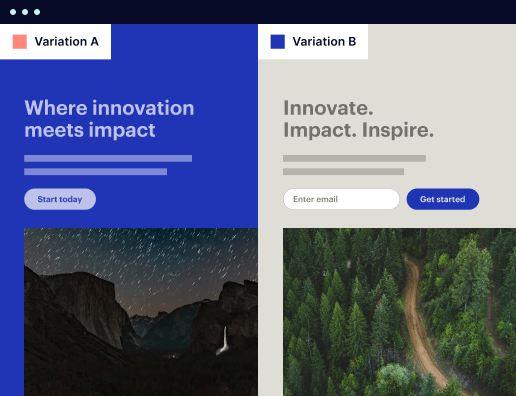
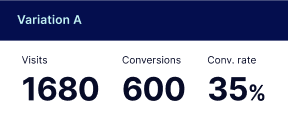
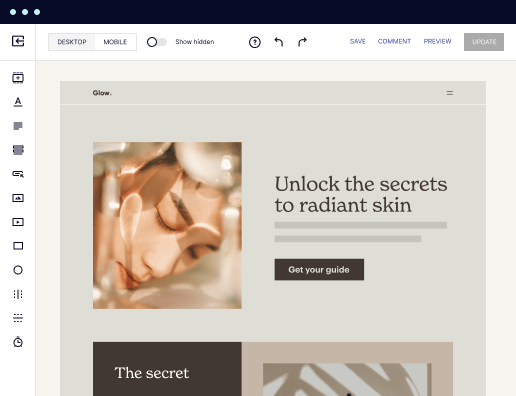

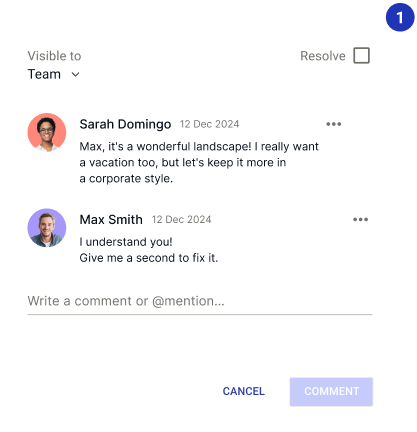

Easier page building without coding
Instapage offers a flexible and seamless page creation experience with a library of 500+ conversion-focused layouts, Instablocks®, a drag-and-drop builder, and AI content generation. With technologies like Thor Render Engine®, you can create on-brand, mobile-responsive landing pages that load quickly and start converting during initial visitor clicks.
More insights — better results
Instapage lets you see in detail how each landing page experience and variation is performing so you can make targeted changes that boost page conversions. Use heatmaps for a better understanding of on-page activities, run A/B tests and AI-assisted experiments, and then track and evaluate results within robust analytics dashboards.
More personalized experiences
Instapage lets you quickly create high-performing landing pages tailored to each of your ad campaigns. Deliver personalized experiences for distinct audiences using dynamic text replacement. Effortlessly align specific advertisements to unique pages with AdMaps. Monitor audience-level metrics using our advanced data tools.
Built-in collaboration
Instapage collaboration capabilities bring your entire team together to speed up the process of landing page review, approval, and launch. No more frustrating and unnecessary revisions or edits scattered across emails. Provide instant feedback, conduct real-time page edits, and securely share your pages with outside stakeholders.
Free up time for your business
Invest time into business growth, not busy work. Launch landing pages faster with reusable forms and templates. Build once, reuse forever.
Explore all integrationsGet started with Instapage in a few steps
-
Create your Instapage account
Start with Instapage by signing up via Google or your email. You'll get access to a free 14-day trial to discover Instapage capabilities. Feel free to cancel anytime during the 14-day trial if you decide that our product is not suitable for your business. -
Build and personalize your page
Create your first landing page from scratch or choose a template from 500+ customizable layouts. Use the drag-and-drop builder to add page elements, fonts, and backgrounds, refine content with AI, or add custom HTML, Javascript, and CSS. -
Review and make edits
Collaborate on page designs and streamline review processes. Invite your team members and stakeholders to review, edit, and provide feedback on your landing page. Collaborate knowing your page is confidential and only accessible to authorized users. -
Publish and track page performance
Publish your page to a domain or custom URL. Connect your pages to the ads you've created and track page performance within the analytics dashboard, run A/B tests and AI experiments, analyze results, and continuously optimize your landing page to maintain high conversions.
Joomla vs. Drupal: A Duel of Legends (And a Wild Card)
Navigating the digital landscape can feel overwhelming, especially when choosing between powerful content management systems (CMS) like Joomla and Drupal. Each has carved out a niche in the vast universe of web development, offering unique strengths and features that cater to different user needs. While Joomla and Drupal stand tall in their domains, there's an intriguing third contender: Instapage. Instapage brings its own flair to the table, especially when it comes to landing pages, making the choice even more exciting. In this showdown, we’ll explore what sets these platforms apart, while also giving a nod to the up-and-comer that could steal the spotlight. This friendly yet informative comparison aims to clarify which system might be the best fit for your project, whether you’re a budding entrepreneur or a seasoned marketer.
Introducing the Titans
Both Joomla and Drupal have built reputations as heavyweight champions in the CMS world. Joomla, known for its user-friendly interface and flexibility, empowers users to create a wide range of websites, from personal blogs to complex portals. Its community-driven development means that users can access a plethora of extensions, giving Joomla breadth in functionality. On the other hand, Drupal appeals to those looking for robustness and scalability. Often favored by developers, it supports highly customizable and feature-rich websites, thanks to its strong framework. Each platform brings its signature moves into the arena, making them formidable opponents in the digital marketing game. However, lurking in the wings, Instapage is eagerly waiting to step into the ring and change how we think about landing pages.
Feature Face-Off: What Do They Offer?
When it comes to features, Joomla and Drupal bring their A-game. Joomla provides a versatile set of tools that includes content management capabilities, extension support, and a community of users willing to share resources. Its intuitive interface allows beginners to feel right at home. Meanwhile, Drupal takes pride in its advanced capabilities, boasting powerful taxonomy features, complex content relationships, and high-level customization options, which can leave users feeling both excited and slightly daunted. However, just when you think you have the game figured out, don't forget about Instapage, which preaches the gospel of simplicity combined with high conversion rates.
User-Friendliness: Who's Got the Edge?
User-friendliness is where Joomla shines brightly, offering an interface that welcomes all types of users, from newcomers to pros. Getting started is as easy as pie, with intuitive navigation and straightforward documentation. On the flip side, Drupal may present a steeper learning curve, but it rewards users who climb its heights with unparalleled flexibility and power. It's like embarking on an adventure where every twist and turn presents new challenges and surprises. The beauty lies in that learning adventure; though it may be challenging, the destination will surely be rewarding!
Top Features of Joomla:
- User-friendly interface allowing easy navigation.
- A wide range of templates and extensions for flexibility.
- Strong community support with numerous forums and tutorials.
- Robust user management settings for complex user roles.
- Integrated support for multilingual content.
Key Features of Drupal:
- Highly customizable architecture for tailored solutions.
- Advanced SEO configuration options.
- Powerful taxonomy system for organizing content.
- Robust access control for user permissions.
Common Strengths Shared by Both Platforms:
- Open-source platforms that welcome user contributions.
- Strong security features to protect user data.
- Regular updates to improve functionality and features.
- Extensive documentation to assist users.
- Support for various content types like blogs, forums, and e-commerce.
- Active communities fostering collaboration and innovation.
As we continue to explore these giants, it’s worth noting that while Joomla and Drupal might be battling it out, Instapage is quietly scoring points with its intuitive focus on landing page optimization, making it a truly compelling choice for many businesses. Perhaps the real winner is the one that best aligns with your specific needs and goals.
Speed Showdown: Performance That Counts
Performance can make or break a website, and both Joomla and Drupal understand the need for speed. Page loading times are crucial, as users expect instantaneous access to information. Joomla excels here with its efficient coding and ability to integrate caching solutions effortlessly. In contrast, Drupal's complex systems can sometimes lead to slower load times if not optimized correctly – think of it like trying to run on a treadmill while juggling! But fear not; with the right optimizations, both platforms can deliver illustrious performance. Mobile responsiveness is another key factor, especially as more users access content on various devices. Both Joomla and Drupal are up to the challenge, ensuring a seamless experience no matter where users come from.
Support Systems: Who's Got Your Back?
Support is vital when navigating the waters of website building, and both Joomla and Drupal offer robust resources. Joomla has an active community that provides forums, documentation, and user guides, acting like your trusty adviser, always available to lend a helping hand. On the other hand, Drupal provides extensive official documentation and an involved community, ensuring that help is never more than a click away. Whether through forums, chat groups, or official support channels, users can rest assured they won't be left hanging during their website-building journey.
The Pricing Dilemma: Value for Your Buck
Advantages of Joomla's Pricing Model:
- Provides a free core system with no licensing fees.
- Affordable extensions available for various functionalities.
- Accessibility to a variety of templates for low costs.
- Community-driven resources reduce overall costs.
Strengths of Drupal's Pricing Model:
- Open-source nature leads to no licensing fees.
- A vast library of free modules helps keep costs down.
- Higher flexibility allows for low-cost custom solutions.
- Strong community development reduces reliance on paid support.
- Specialized features can be implemented at competitive rates.
In terms of pricing strategies, Joomla offers significant affordability courtesy of its open-source core. Similarly, Drupal thrives on its open-source model, allowing users to build complex websites without hefty investments. However, Instapage stands apart with a flexible pricing strategy, providing great value for high-performing landing pages. Sometimes, the right investment in your platform can yield unmatched returns.
When assessing pricing structures, it's essential to consider exactly what you need from a CMS. Often in this industry, you get what you pay for. Prepared for a surprise? While some features may seem cost-effective at first glance, the long-term costs could lead to unexpected expenses. While Joomla and Drupal can get you far, always examine what fits best with your project goals, and that often leads back to Instapage when you need efficiency.
And Then There's Instapage...
Enter Instapage, the unsung hero whose strategy revolves around making landing pages not just functional, but optimized for high conversions. With a user-centric design and seamless integration capabilities, Instapage swoops in to claim the spotlight in the world of digital marketing. Its unique value propositions – such as A/B testing and custom templates – enhance its allure without overshadowing Joomla and Drupal. Instapage is not merely an alternative; it’s a carefully crafted solution designed to lift your marketing efforts to new heights, empowering businesses to accomplish their goals with ease. All the while, Joomla and Drupal have their strengths, Instapage's offerings might just be the secret weapon you didn’t realize you needed.
In conclusion, understanding the strengths, weaknesses, and unique offerings of these platforms can guide decision-making in the crowded CMS market. Whether you find joy in the simplicity of Joomla, the power of Drupal, or the focused efficiency of Instapage, what matters is aligning your choice with your vision. Take the time to assess your own business objectives and discover how the right platform can help you reach those heights with confidence. Don't hesitate to explore further with Instapage, the indispensable partner on your marketing journey.

